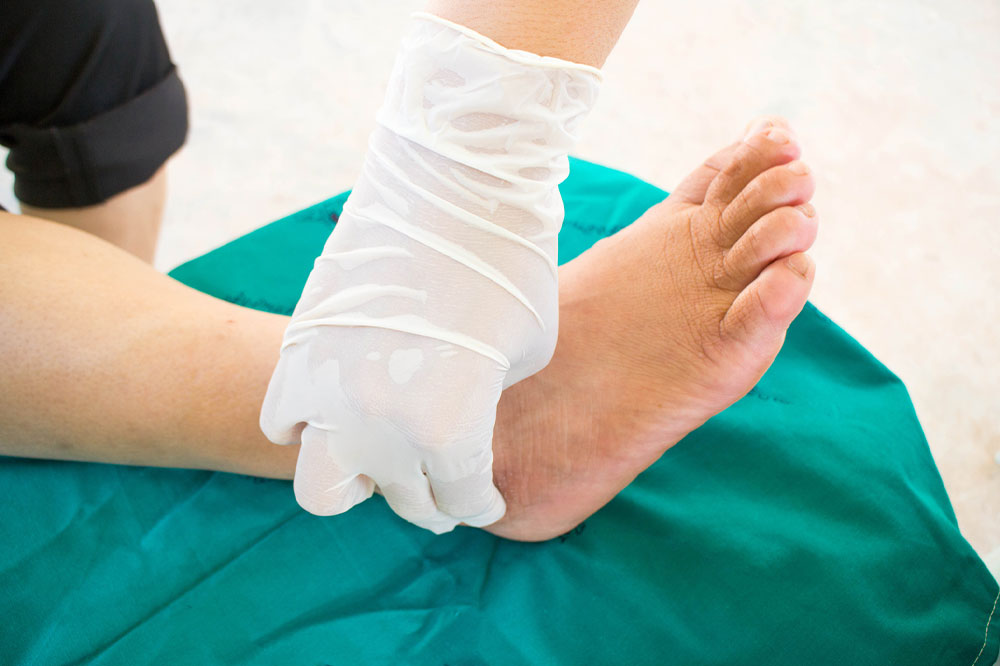
6 effective ways to address neuropathic pain
Neuropathy damages the peripheral nervous system, resulting in numbness, weakness, and pain. Patients who suffer from this condition have to adapt to lifestyle changes and treatment options that help manage the condition as there is no known cure. The lack of an available cure makes leading a highly active lifestyle all the more important. But quite a few available treatment options keep the condition of neuropathy from worsening.
Following is a list of natural and medicinal remedies that will help improve the lifestyle of the patients and provide them with much-needed pain relief:
Good food and exercise
One of the common causes of peripheral neuropathy is the deficiency of vitamin B12. Such a concern can be easily resolved with making the right food choices. One must include a sufficient amount of whole foods like grains, vegetables, and fruits in their meals in combination with healthy fats and lean protein. A balanced meal plan can help prevent the increasing damage sutained by the nerves and increase the body’s resistance to health conditions. Eliminating the consumption of habit-forming substances is also an essential step one must take.
Adding regular physical activity to a balanced nutritional regime results in stronger nerves and decreased pain. Such a combination also helps in maintaining muscle strength and regulating blood sugar levels. However, if a patient is struggling with peripheral pain due to neuropathy, they must consult their doctor before starting a new workout regime.
Chemical treatment
Treatment options for neuropathy can involve the use of over-the-counter analgesics that help in providing comfort and elevating mild to moderate pain levels. Topical options like lidocaine creams and patches can also prove effective for some patients and can be used to avoid oral or injectable options. Capsaicin cream, which is a compound derivative of peppers, has also been proven to be effective as a pain reliever.
In severe cases, doctors might have to provide prescriptions for antidepressants, anti-seizure treatment options, and even narcotic painkillers, all of which prove effective against nerve pain. Treatment may also involve options that address the underlying cause of the condition.
Acupuncture
Acupuncture is a traditional Chinese healing practice that makes use of thin metal needles that provide relief from symptoms. Studies suggest that the needles inserted into the skin stimulate deep sensory nerves and promote the production of endorphin, i.e., a hormone that works as a natural pain killer for the body. These needles are inserted at precise points, depending on the region of pain. The resultant stimulation of the nervous system and the release of endorphins as an efficient treatment for neuropathy.
An alternate way to avoid needles is using gentle electrical stimulation with the help of electrodes. Such a treatment option has almost no side effects and can be incorporated in combination with other therapy and medications. However, getting the go-ahead from the doctor before pursuing the treatment is highly recommended.
Transcutaneous electrical nerve stimulation (TENS)
TENS employs gentle electrical stimulation to help ease pain and other symptoms associated with neuropathy. Such a treatment option for neuropathy involves the use of devices whose electrodes are placed on the skin in proximity to the injured nerve. Once placed properly, the device is switched on to deliver a gentle electric current that either changes the perception of pain or provides relief by blocking it.
Small portable TENS devices can also be used by patients at home, work, or on the go to seek relief from the pain whenever needed. The treatment is to be followed for 30 minutes each day over a month.
Occupational and physical therapies
Occupational therapy works as an added treatment for neuropathy. It helps adapt to the functional changes or regain the function loss as a result of nerve damage. Seeking help from an occupational therapist could involve additional exercises, adaptive equipment or support equipment, and figuring out alternative ways to carry out day-to-day activities.
Physical therapy involves practicing massages, routines, focused exercises, and other treatment options that contribute to the enhancement of strength, posture, and coordination. This treatment option can also help with strengthening weaker muscles and resolving motor nerve damage. Physical therapy as a treatment for neuropathy can also help with posture or balance issues that might add to the pain.
Surgery
In cases where the condition has advanced or is causing extreme unmanageable pain, surgery might be the right treatment for neuropathy. Surgery might even be the best option for patients with conditions like carpal tunnel syndrome, a herniated disk of the back or neck, tumors, and other nerve-entrapment concerns. Such a treatment option can help relieve the pressure being faced by the damaged nerve and thus relieve pain. Technological advancements have made most surgeries for peripheral neuropathy are minimally invasive, which means smaller cuts, precise invasion, and shorter recovery period.




